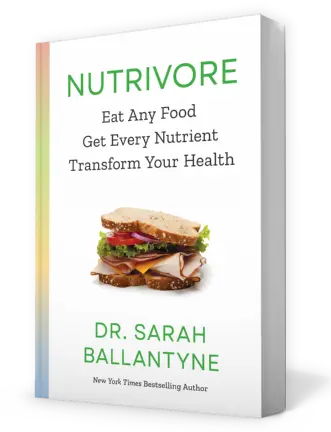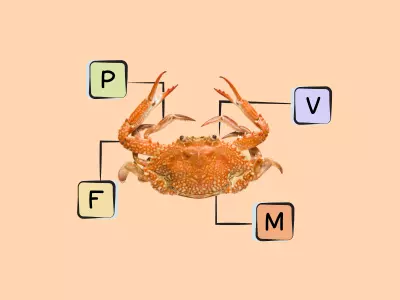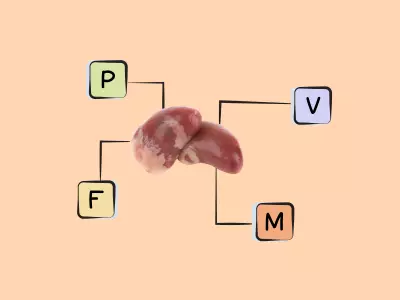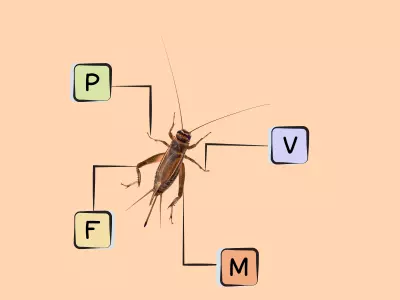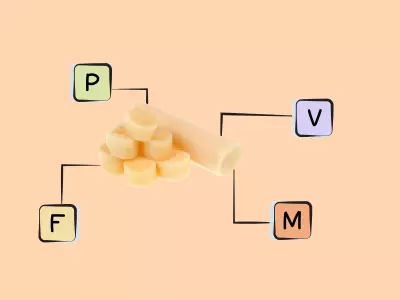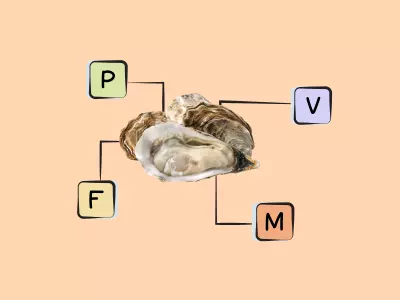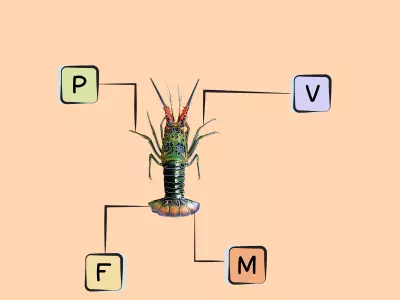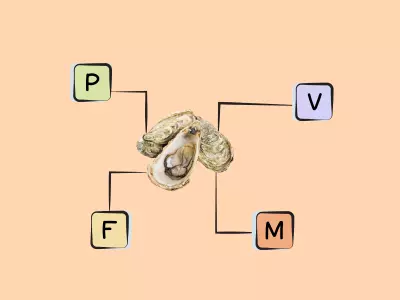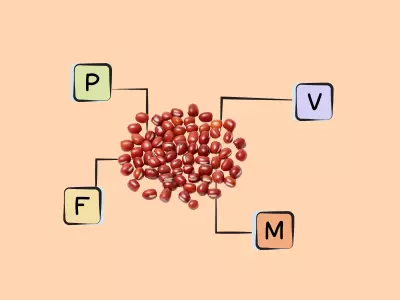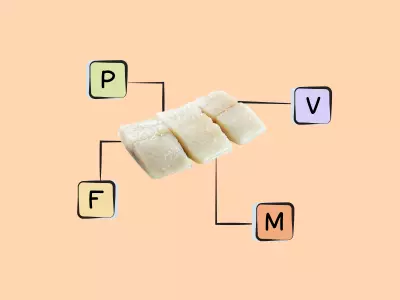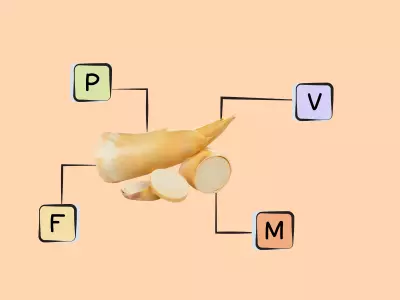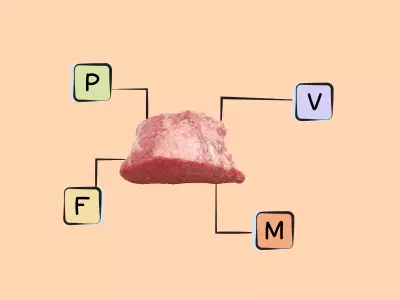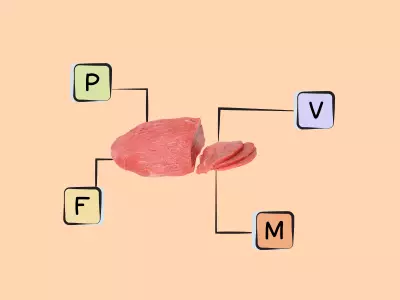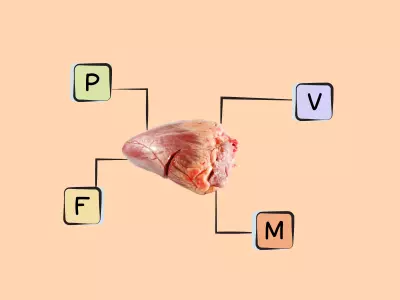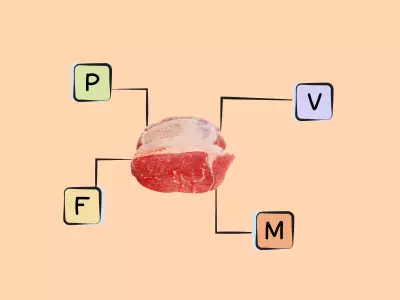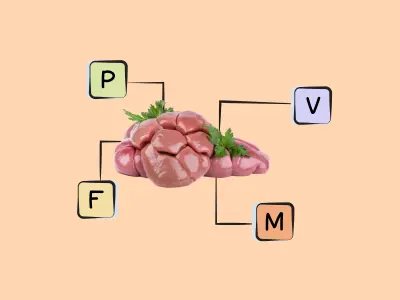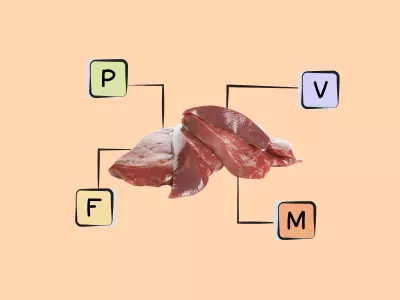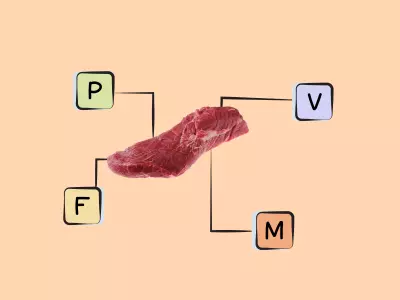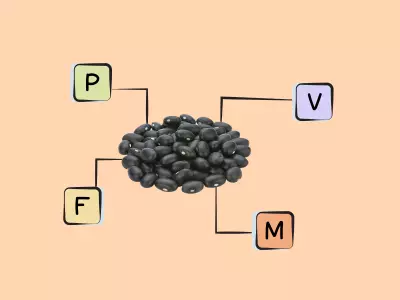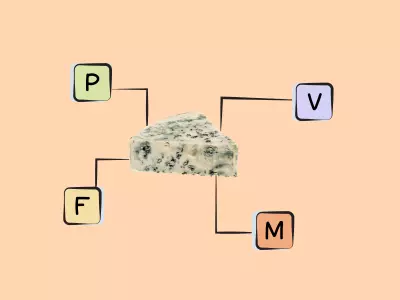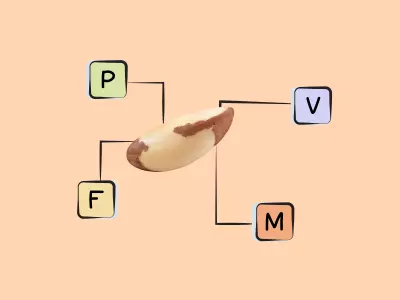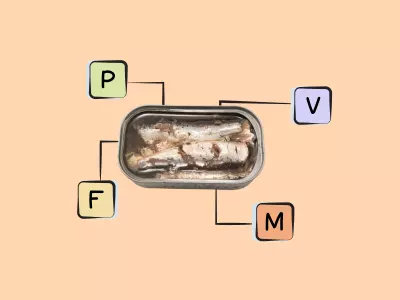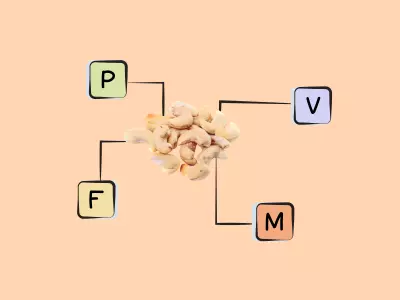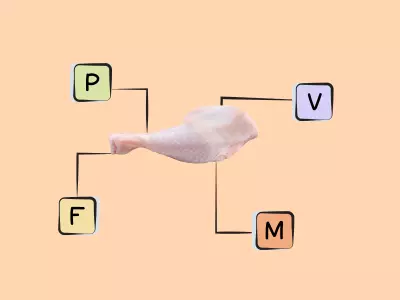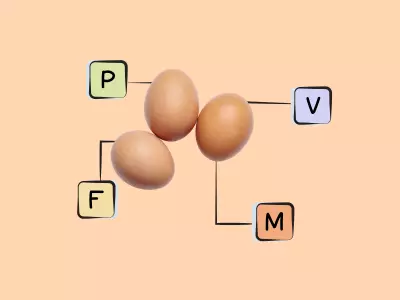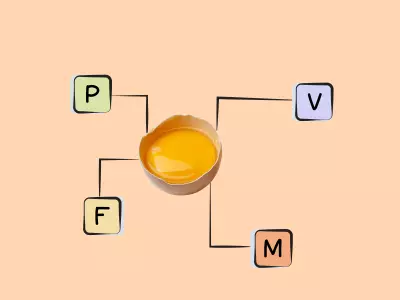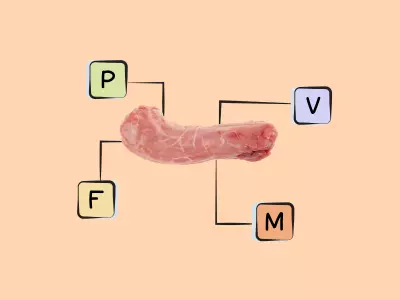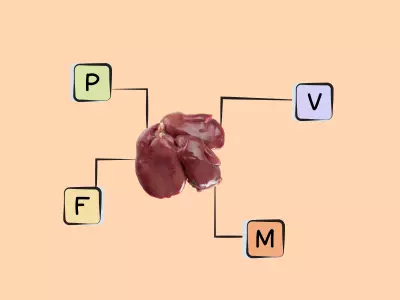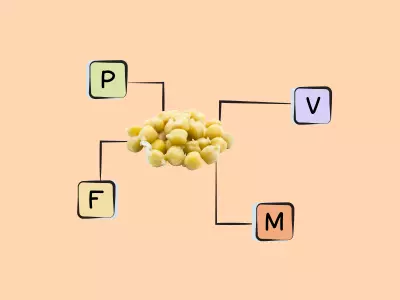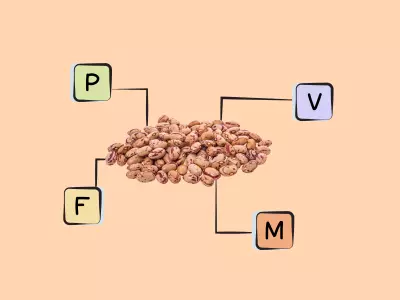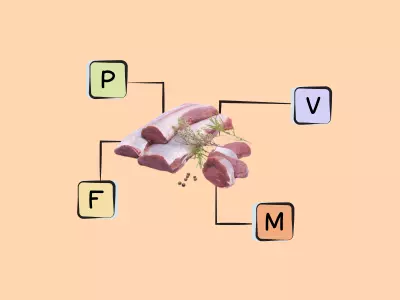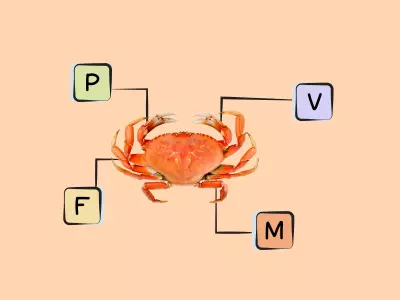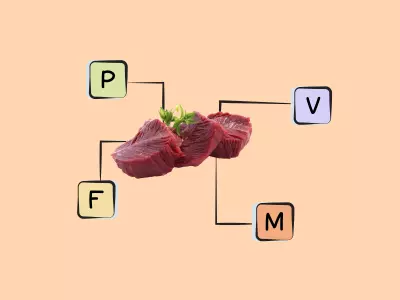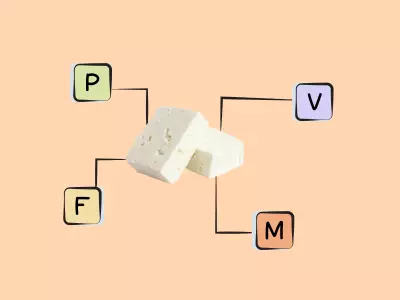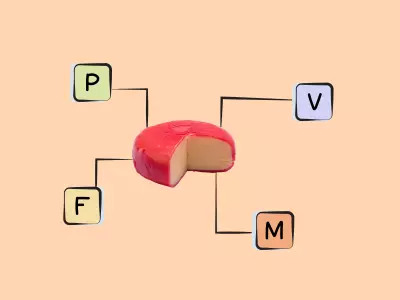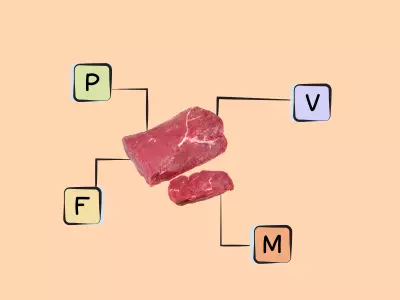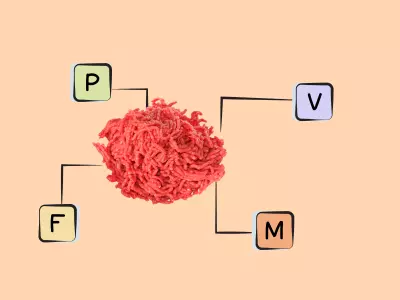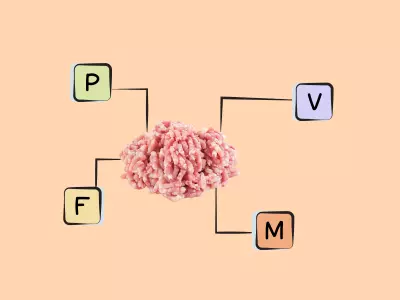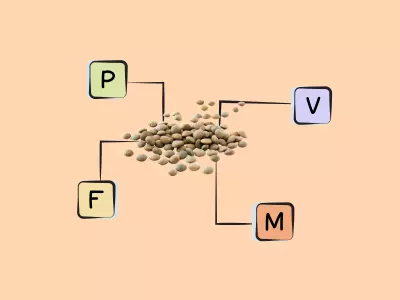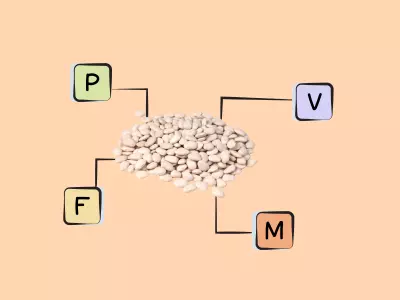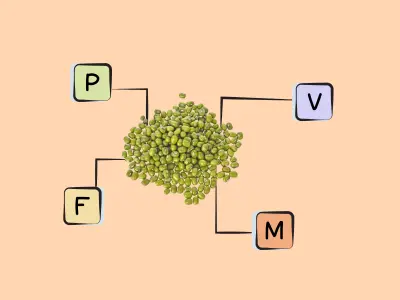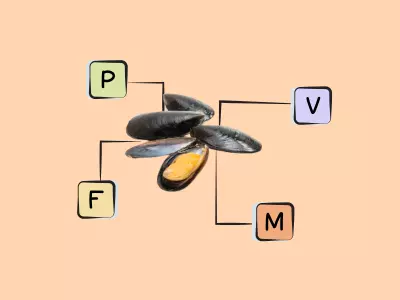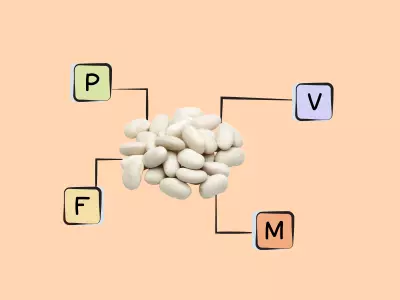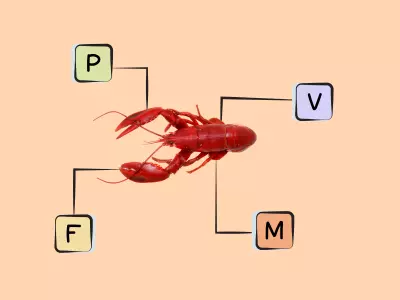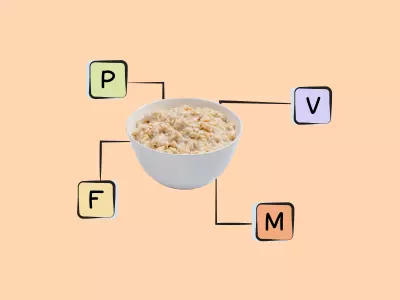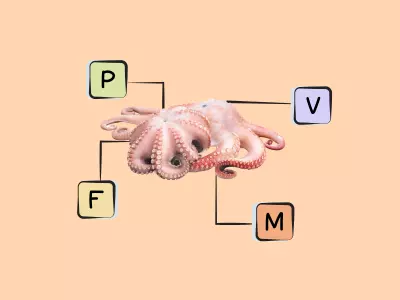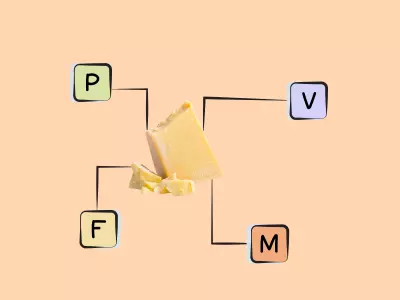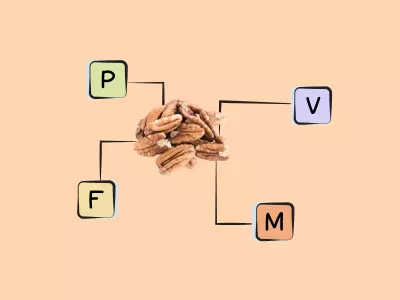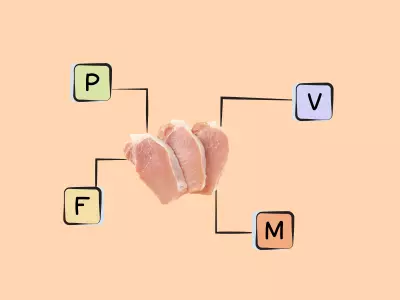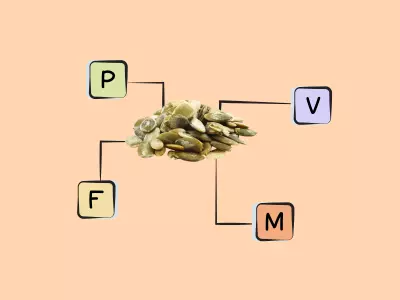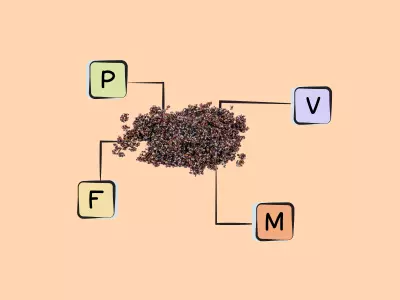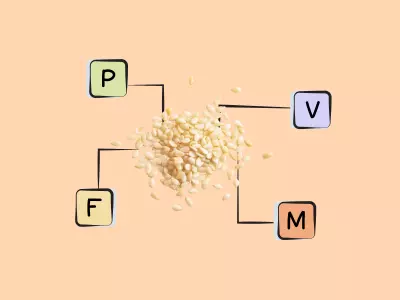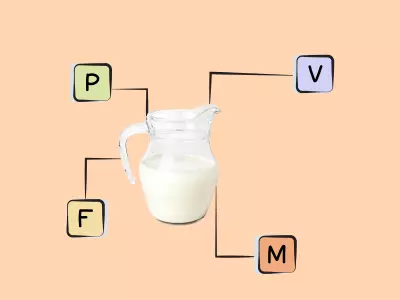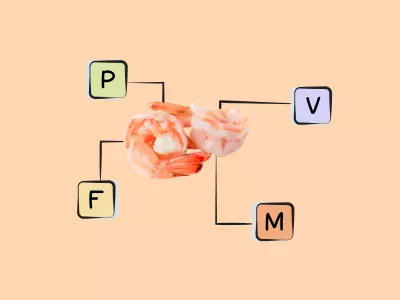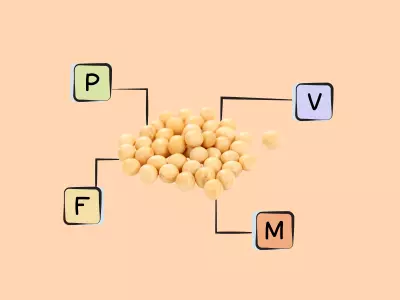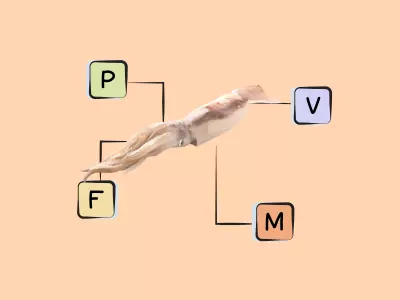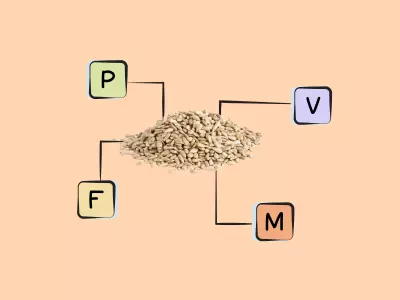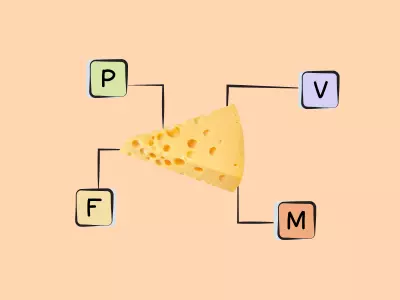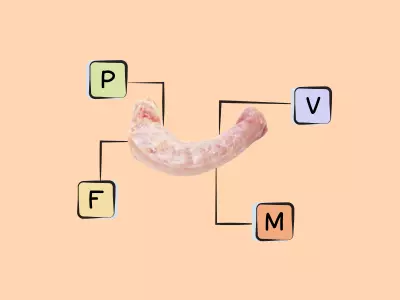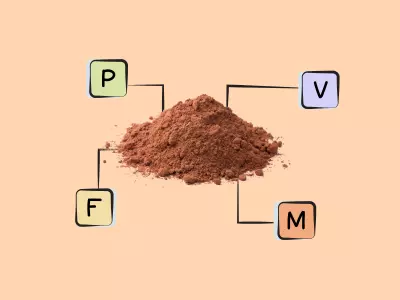Key Takeaways (expand)
- Zinc is a trace element, and is the second most abundant metal in the body.
- Zinc helps facilitate protein folding via “zinc fingers”—small structural motifs that coordinate zinc ions and help stabilize the protein fold.
- Zinc serves as a cofactor for over 300 enzymes and more than 1000 transcriptional factors.
- Due to being essential for DNA and RNA transcription, zinc has a role in controlling gene expression and cellular communication.
- Zinc also helps regulate the activity of inflammatory cells, as well as programmed cell death (apoptosis)—an important part of the cell cycle.
- Zinc is involved in regulating the expression of metallothioneins, a family of metal-binding proteins that buffer against toxicity from heavy metals and protect against oxidative stress.
- Zinc serves as a cofactor for collagenase (a collagen-remodeling enzyme), and also helps activate proteins essential for collagen synthesis—giving it a role in collagen formation and skin health.
- Zinc is also important for the function of sensory organs; in fact, zinc deficiency can cause the loss of smell and taste!
- When it comes to vision, zinc is required for synthesizing proteins involved in retinol release and transport, as well as for producing rhodopsin—a protein that allows the eye to absorb light and adapt to darkness.
- Zinc also influences hormone release, making it relevant to some hormone-related diseases and conditions.
- Several other micronutrients require zinc for their absorption and metabolism, including the B vitamins, vitamin D, magnesium, and vitamin A.
- Zinc is heavily involved in the immune system, and essential for the development of cells mediating both the innate and adaptive immune responses.
- When started within 24 hours of the onset of illness, zinc supplements (especially lozenges) can shorten the length of the common cold—reducing the duration of symptoms like nasal discharge, coughing, congestion, throat hoarseness or scratchiness, sneezing, and muscle ache.
- Some research suggests that zinc deficiency is associated with poorer outcomes for Covid-19 patients, whereas higher zinc levels are associated with Covid-19 survival and a more successful Covid-19 vaccination response.
- In elderly adults, zinc supplements may help reverse age-related decline in immune function.
- Zinc supplements may also help reduce the risk of opportunistic infections and immune failure in HIV/AIDS patients.
- Some evidence suggests zinc can help prevent the recurrence of canker sores.
- Higher zinc intake is associated with lower diabetes risk—possibly due to its involvement in synthesizing and storing insulin, stimulating glucose uptake, and improving glycemic control.
- Research shows a protective effect of zinc against several neurological conditions, including Alzheimer’s disease and depression.
- Zinc deficiency causes a disruption in hundreds of metabolic pathways, potentially leading to immune dysfunction, increased infection risk, poor night vision, skin problems, impaired wound healing, higher risk of pregnancy complications, and potentially increased susceptibility to some chronic conditions—including cancer, cardiovascular disease, and autoimmune disease.
- In children, zinc deficiency can impair mental and psychomotor development, as well as delay growth and weight gain.
- Foods high in zinc include red meat, some organ meats (especially liver and heart), seafood (especially oysters), eggs, legumes, nuts, and whole grains.
- Due to the zinc-binding phytate found in many zinc-rich plant foods, zinc bioavailability is generally lower in plant foods than animal foods.
Table of Contents[Hide][Show]
Zinc in Health and Disease+−
- Zinc and Immunity
- Zinc and Type 2 Diabetes
- Zinc and Eye Health
- Zinc and Genetic Disorders
- Zinc and Cardiovascular Disease
- Zinc and Neurodegenerative Disease
- Zinc and Mental Health
- Zinc and Fatigue
- Zinc and Hair
- Zinc and Osteoarthritis
- Zinc and Erectile Dysfunction
- Zinc and Chronic Fatigue Syndrome
- Zinc and Skin Health
- Zinc and Cancer
- Zinc and Osteoporosis
- Zinc, Allergies, and Asthma
- Zinc and Migraine Headaches
- Zinc and Sleep
- Zinc and ADHD
- Zinc and Hypothyroidism
- Health Effects of Zinc Deficiency
- Problems From Too Much Zinc
- How Much Zinc Do We Need?
- Best Food Sources of Zinc
- Good Food Sources of Zinc
Zinc is a trace element and the second most abundant metal in the body, and was first identified as essential for all forms of life in 1963 (although it was known to the Greeks and Romans as far back as 20 BCE, when powdered zinc was used along with charcoal and copper to form brass!). The origin of the word zinc isn’t fully known, but it may come from the German Zinke, meaning “prong” or “point.”
Since the discovery of its nutritional importance, research has revealed an astounding number of roles for this trace mineral—including being used in nearly every cellular function (from protein and carbohydrate metabolism to cell division and growth), neurotransmission, vision, reproduction, intestinal transport, immune function, DNA synthesis, and wound healing—and more!
Good sources of zinc include red meat, some organ meats (especially liver and heart), seafood (especially oysters), eggs, legumes, nuts, and whole grains. But, due to the phytate content of zinc-rich plant foods, its bioavailability is much higher in animal products. Some foods are also fortified with zinc, such as breakfast cereals.
The Biological Roles of Zinc
Zinc is needed for the body’s structural, catalytic, and regulatory functions. It helps facilitate protein folding via “zinc fingers”—small structural motifs that coordinate zinc ions in order to stabilize the protein fold. It also serves as a cofactor for an astounding 300-plus enzymes and over 1000 transcriptional factors! In fact, zinc is essential for DNA and RNA transcription (the “reading” of the DNA map to make proteins), and as a result, controls gene expression and communication within cells. Zinc also regulates apoptosis, or programmed cell death, which is an important part of the cell cycle. Zinc also helps control the activity of the body’s inflammatory cells and regulates the expression of metallothioneins—a family of metal-binding proteins that protect against oxidative stress and buffer against toxicity from heavy metals. And, along with these direct regulatory functions, zinc can stimulate a zinc-sensing receptor that causes intracellular calcium to be released, which then serves as a messenger in signaling pathways.
Because of its involvement in cell membrane structure and cell signaling, zinc is required for for muscle contraction. It’s also needed for collagen formation and maintenance, due to activating the proteins essential for collagen synthesis, as well as the collagen-remodeling enzyme collagenase. It plays a role in skin health and the function of sensory organs (that’s why zinc deficiency is associated with loss of smell and taste!). It’s also a critical micronutrient for a healthy immune system, essential for the development of cells mediating both the innate and adaptive immune responses (including neutrophils, natural killer cells, macrophages, B-lymphocytes, and T-lymphocytes); zinc has even been shown to reduce cytokine production by Th1 and Th17 cells. Not only that, but zinc influences hormone release, making it relevant to some hormone-related diseases and conditions.
Interactions with Other Nutrients
Zinc also plays a role in our ability to use other micronutrients. For example, it’s important for the absorption and activity of B vitamins, and is an essential component of the vitamin D receptor (the binding site of vitamin D in cells)—meaning that the actions of vitamin D are at least in part dependent on zinc. Zinc also works synergistically with magnesium, with zinc boosting magnesium absorption and magnesium helping the body regulate zinc levels. However, extremely high doses of zinc (typically 142 mg daily and above) can begin hindering magnesium absorption rather than helping it.
Vitamin A metabolism, too, is dependent on zinc, since zinc is used in the synthesis of retinol-binding protein that transports retinol throughout circulation to organs and tissues, and is required for the enzyme that releases retinol from storage in the liver. Zinc is also needed for the enzyme that converts retinol into retinal, a form of vitamin A used in the synthesis of an important protein called rhodopsin, which allows the eye to absorb light and adapt to darkness (not surprisingly, zinc deficiency is associated with night blindness!).
Drug Interactions with Zinc
Zinc supplementation may also reduce the absorption of certain medications, including penicillamine, cephalexin, and several antiretroviral drugs (including ritonavir and atazanavir). And, taking zinc alongside the antibiotics tetracycline and quinolone can reduce the absorption of both the zinc and the drug, making it important to take them at least two hours apart. If you’re on prescription medication and plan on supplementing with zinc, it may be wise to seek medical advice from a healthcare professional in order to help avoid possible interactions.
Everything You Need to Jump into Nutrivore TODAY!
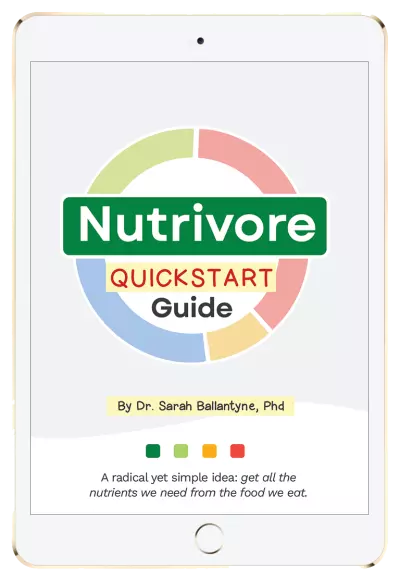
Nutrivore Quickstart Guide
The Nutrivore Quickstart Guide e-book explains why and how to eat a Nutrivore diet, introduces the Nutrivore Score, gives a comprehensive tour of the full range of essential and important nutrients!
Plus, you’ll find the Top 100 Nutrivore Score Foods, analysis of food groups, practical tips to increase the nutrient density of your diet, and look-up tables for the Nutrivore Score of over 700 foods.
Buy now for instant digital access.
Zinc in Health and Disease
Research shows zinc (particularly in the form of lozenges) can reduce the duration of the common cold, as long as supplementation begins shortly after the onset of illness; this is due to both its direct effects on viruses and its overall influence on immunity. Zinc’s immune-boosting effects also give it a role in protecting against age-related immune decline, improving Covid-19 survival and health outcomes, preventing the recurrence of canker sores, and reducing the risk of opportunistic infections and immune failure in HIV/AIDS patients. Other research suggests zinc could help protect against several neurological conditions, including Alzheimer’s disease and depression, as well as improve blood lipid profiles.
Due to zinc’s wide-ranging roles in the body, insufficiency can disrupt hundreds of metabolic pathways—subsequently impacting immune function, vision, wound healing, and pregnancy outcomes, as well as potentially increasing the risk of some chronic conditions like heart disease, cancer, and autoimmunity. Zinc is particularly important during childhood for supporting healthy mental and psychomotor development and physical growth, with deficiency in early childhood causing impairments in these areas.
Zinc and Immunity
One of the most notable effects of zinc is its effects on immunity and infectious disease. In fact, zinc’s reputation for combatting colds goes all the way back to 1984, when a study showed zinc supplementation helped prevent people from getting sick!
Since then, more and more research has confirmed a role for zinc in the common cold. Across studies, zinc supplementation has been shown to help reduce the duration of colds, with meta-analyses showing that using lozenges containing 75 – 80 mg per day of zinc acetate or zinc gluconate can help significantly reduce the length of illness (however, above 80 mg daily doesn’t appear to have much added benefit). One meta-analysis showed that when properly dosed and started early enough in the cold cycle, zinc supplementation was able to shorten the duration of nasal discharge by 34%, congestion by 37%, coughing by 46%, throat hoarseness by 43%, sore throat by 18%, scratchy throat by 33%, muscle ache by 54%, and sneezing by 22%! And another meta-analysis found that on average, taking zinc reduced the length of the cold by 2.7 days (down from an average of seven days). These effects appear due to zinc’s ability to prevent cold viruses (typically rhinovirus) from binding and multiplying in the mucous membranes of the throat and nose, as well as reducing nasal inflammation. In order to shorten the length of cold symptoms, it may be necessary to begin zinc supplementation within 24 hours of the onset of illness, and the mode of delivery seems key: lozenges allow for direct, prolonged contact between zinc and the cold virus, whereas dietary supplements in the form of pills may be less effective.
Some studies have also looked at zinc in relation to Covid-19. Although there’s no strong evidence that zinc supplementation can significantly alter the course of the disease, some studies have found a link between zinc deficiency and worse Covid-19 outcomes—including more severe inflammatory responses, longer hospital stays, and higher risk of mortality. One study found that nearly 80% of ICU patients requiring mechanical ventilation had low zinc levels upon hospital admission. Meanwhile, higher zinc levels have been associated with greater Covid-19 survival. And, one study found that free zinc levels in the body were associated with a more successful Covid-19 vaccination response (as measured by induced antibodies and the potency of neutralizing antibodies after being vaccinated)—suggesting that being zinc-replete helps the body more effectively build immunity.
Among elderly adults, studies have found that zinc supplementation helps reverse age-related declines in T-cell function (including increasing blood concentrations of helper T-cells and cytotoxic T-cells). In patients with HIV/AIDS, zinc supplementation (12 – 15 mg of zinc daily) appears to decrease the risk of opportunistic infections, diarrhea, and immunological failure, particularly among subjects who initially had low zinc levels.
The use of zinc may also benefit canker sores, also known as aphthous ulcers—which are small, shallow lesions that form in the soft tissues of the mouth. Some studies have linked low serum zinc levels to higher recurrence of canker sores, and several trials found that supplementing with zinc sulfate (between 150 and 660 mg daily) reduced the recurrence of canker sores by 50 to 100%!
Zinc and Type 2 Diabetes
In addition, zinc may help manage some chronic diseases. For example, zinc is involved in synthesizing and storing insulin, and stimulates the uptake and metabolism of glucose within insulin-sensitive tissues (by triggering the intracellular insulin signaling pathway)—giving it a potential role in diabetes.
In fact, several large studies have shown a significantly lower risk of diabetes among women with the highest versus lowest dietary zinc intake, and some short-term intervention trials indicate that supplementing with zinc could improve the glycemic control of people with pre-diabetes. In diabetics with existing zinc deficiency, zinc supplementation has also been shown to reduce the proportion of glycated hemoglobin. And, in pregnant women with gestational diabetes, zinc supplementation (30 mg per day) was able to reduce fasting blood sugar and improve insulin sensitivity.
Zinc could even help protect against several diabetes complications, particularly diabetic neuropathy and diabetic retinopathy. For example, a 2021 study found that zinc deficiency correlated with the severity of diabetic polyneuropathy, and animal models have shown that zinc supplementation can alleviate this condition by inhibiting oxidative stress and upregulating metallothionein in peripheral nerves. Likewise, zinc may help protect against oxidative changes in the retina in early stages of diabetes, and several studies have found that patients with diabetic retinopathy tend to have significantly lower serum zinc concentrations than either healthy controls or diabetics without this condition.
Zinc and Eye Health
Zinc is also hypothesized to play a role in age-related macular degeneration, a disease affecting part of the eye’s retina known as the macula (which has a high concentration of zinc, but that declines with age—as do some zinc-dependent retinal enzymes). Although studies have had mixed results in linking dietary zinc intake with this condition, consuming supplemental zinc in combination with some antioxidants (vitamin C, vitamin E, and beta-carotene) has been shown to reduce the incidence of age-related macular degeneration over the course of four years. An early randomized trial also found that taking 200 mg daily of zinc sulfate (equivalent to 81 mg daily of elemental zinc), for a duration of two years, reduced vision loss among people with age-related macular degeneration.
Some research has also linked zinc deficiency to the the inflammatory eyelid condition blepharitis, though the evidence here is limited (and mixed!).
Zinc and Genetic Disorders
Zinc also plays a role in Wilson’s disease—a genetic condition where the body can’t properly filter copper, causing it to accumulate in the liver, brain, eyes, and other vital organs. In people with this condition, zinc supplementation is able to induce metallothionein within the gut mucosa, which in turn binds copper and prevents its absorption and buildup.
Zinc and Cardiovascular Disease
Although zinc isn’t typically known as a nutrient associated with heart health, there’s evidence it can improve blood lipid levels. A meta-analysis of 24 controlled clinical trials found that zinc supplementation (15 to 240 mg daily, for a duration of anywhere between one month and 7.5 years) significantly lowered LDL cholesterol, total cholesterol, and triglycerides.
Zinc and Neurodegenerative Disease
Zinc may be connected to some neurodegenerative conditions, particularly Alzheimer’s disease.
In elderly patients with Alzheimer’s disease, zinc supplementation (150 mg per day of zinc acetate, for six months total) was shown to prevent the deterioration of their cognitive scores, suggesting an ability of zinc to stabilize cognitive deficits in older Alzheimer’s patients.
Zinc and Mental Health
Research has explored the possibility that zinc could play a role in mental health conditions. A 2017 study of adolescent female students found that serum zinc levels were inversely associated with Beck’s depression inventory (BDI) and hospital anxiety depression scale (HADS) test scores, indicating a possible protective effect of zinc on mental health conditions. Some trials have also shown that zinc supplementation (25 mg per day for six or 12 weeks) reduced depression symptoms.
Likewise, zinc may be beneficial for obsessive-compulsive disorder. A 2012 prospective, double-blinded eight-week trial found that compared to fluoxetine alone (a drug sometimes used to treat obsessive-compulsive disorder), fluoxetine plus 440 mg of zinc daily led to significant decreases in participants’ average Yale-Brown Obsessive-Compulsive Scale scores. A 2012 study also found that compared to healthy controls, patients with obsessive-compulsive disorder tended to have lower blood levels of zinc.
Zinc and Fatigue
Some evidence shows a link between zinc and physical fatigue. A 2021 parallel clinical trial of elderly adults found that compared to the control group, participants consuming 30 mg of zinc daily for 70 days led to significant reductions in fatigue. A prospective, randomized, double-blinded, placebo-controlled study from 2017 also found that among patients with colorectal cancer receiving chemotherapy, 16 weeks of zinc supplementation (70 mg daily) helped prevent fatigue and maintain quality of life. More studies are needed to assess the effects of fatigue in different populations!
Zinc and Hair
Zinc may benefit some aspects of hair health, including conditions like alopecia (hair loss). A small trial from 2009 found that giving alopecia areata patients 50 mg of oral zinc gluconate daily led to positive effects on hair for nine out of the 15 patients. A 2018 case-control study found that compared to age-matched controls, participants with female androgenetic alopecia had significantly lower lower hair and blood levels of zinc. And, a very small trial 2012 found that oral zinc supplementation successfully improved five patients’ zinc deficiency-related telogen effluvium (rapid, excessive hair loss caused by stress or trauma).
Several other studies have also found suppressed levels of zinc among patients with alopecia areata and chronic telogen effluvium, and animal models have shown potential for zinc to modulate hair growth and accelerate re-growth in experimentally induced alopecia. That being said, more controlled research is needed in humans!
Zinc and Osteoarthritis
Some clinical and experimental studies suggest a beneficial role of zinc in osteoarthritis. In animal models and cell studies, zinc has been shown to prevent the progression of experimentally induced osteoarthritis, including protecting against cartilage degradation. A 2023 prospective observational study of 474 osteoarthritis patients found that incremental increases in zinc consumption were linked with a significant slowdown in the progression of subchondral sclerosis—the thickening of bone that happens in osteoarthritis-afflicted joints. The protective effect of zinc was most notable among females, middle-aged individuals, and patients with higher calcium and magnesium intake.
However, some observational studies have linked higher dietary and/or circulating levels of zinc with increased risk of osteoarthritis. More research is needed to clarify the relationship here!
Zinc and Erectile Dysfunction
Zinc may even help erectile dysfunction! A 2022 analysis of National Health and Nutrition Examination Survey data, including a total of 3,745 individuals, found that dietary intake of trace metals (including zinc) was significantly lower among erectile dysfunction patients. Compared to the lowest quartile, participants in the highest quartile of zinc intake had a 36% lower risk! This relationship persisted even after accounting for age, education, BMI, hypertension, diabetes, annual household income, marital status, race, and current health status.
Animal models have also shown that zinc supplementation improves sexual and erectile function by upregulating erectogenic enzymes. More controlled research is needed in humans, however!
Zinc and Chronic Fatigue Syndrome
A 2006 study found that patients with chronic fatigue syndrome had significantly lower levels of serum zinc than healthy controls. Low zinc status among these patients was also associated with signs of inflammation and defects in early T cell activation pathways. Additionally, there was a trend towards a significant negative relationship between serum zinc and the severity of the disease.
A 2021 randomized, double-blind, placebo-controlled trial tested the effects of oral melatonin plus zinc on 50 patients with myalgic encephalomyelitis/chronic fatigue syndrome. After 16 weeks of taking 1 mg of melatonin plus 10 mg zinc each day, there was a significant reduction in the perception of physical fatigue, along with notable increases in quality of life. Of course, while promising, it’s uncertain from this study alone which effects could be attributed to the melatonin, the zinc, or a synergistic effect of the two!
Zinc and Skin Health
Research suggests a role of zinc in a variety of skin conditions.
A 2013 systematic review concluded that preponderance of evidence suggests zinc (both oral and topical) can have a beneficial effect on acne, including exerting antibacterial and anti-inflammatory effects and decreasing sebum production. A 2020 systematic review and meta-analysis found that acne patients have significantly lower serum levels of zinc compared to controls, and that zinc supplementation can significantly improve mean inflammatory papule count. Studies have also found a relationship between correlation serum zinc levels and the severity and type of acne lesions.
Both oral and topical zinc have also been shown to benefit the skin condition rosacea. A 2006 randomized, double-blind, placebo-controlled trial found supplementation with 300 mg of zinc sulfate daily (divided into three 100 mg capsules), for a period of three months, led to significant improvements in the condition!
Limited but compelling evidence suggests zinc could be helpful for hidradenitis suppurativa (also known as acne inversa or Verneuil’s disease)—a skin condition that causes small, painful lumps to form under the skin. A 2007 pilot study found that supplementation with 90 mg of zinc gluconate per day led to a clinical response in all 22 hidradenitis suppurativa patients, with eight experiencing complete remission and 14 experiencing partial remission. A 2016 trial similarly found that three months of supplementation with 90 mg zinc gluconate each day, in combination with topical triclosan (an antimicrobial drug), significantly decreased the number of new boils or flare-ups, inflammatory nodules, and erythema scores among patients.
Some research has shown that zinc deficiency or insufficiency could exacerbate atopic dermatitis (also known as eczema). Likewise, a 2019 systematic review and meta-analysis found that compared to healthy controls, atopic dermatitis patients had significantly lower serum, hair, and red blood cell levels of zinc. One randomized controlled trial found that among atopic dermatitis patients with zinc deficiency, oral zinc supplementation led to improvements in the extent and severity of the condition; however, another randomized controlled trial found no effect. More research is needed!
Zinc and Cancer
Although evidence for a relationship between zinc and cancer is mixed, some studies have found a protective effect of zinc on specific cancer types.
A 2018 meta-analysis, for example, found that higher serum zinc levels are associated with a reduced risk of cervical cancer. A 2022 prospective cohort study of 17,035 women also found that among women with a high phosphorus intake, higher zinc intake was associated with a 59% lower risk of breast cancer-specific death and a 36% lower risk of overall death.
Zinc and Osteoporosis
Some evidence suggests zinc could benefit bone health, and in particular help combat osteoporosis. A 2021 clinical trial of 122 osteoporotic patients with zinc deficiency found that oral supplementation with 25 mg zinc twice daily, for a period of 12 months, led to significant increases in bone mineral density and a rise in bone formation markers. A 2021 meta-analysis and systematic review likewise found that compared to healthy controls, serum zinc levels are significantly lower in patients with osteoporosis and/or fractures, and that zinc supplementation effectively improves bone density at several sites (femoral neck and and lumbar spine), while also improving markers for bone formation such as serum osteocalcin and serum alkaline phosphatase.
Zinc, Allergies, and Asthma
Given its important role in immunity, it might not be surprising that zinc can benefit immune-mediated conditions like allergies and asthma. For example, a 2017 study found that lower serum zinc levels were significantly associated with total IgE, dog-specific IgE, cockroach-specific, and dust mite specific-IgE levels. Likewise, zinc has been shown to play an important role in mast cell, basophil, and T cell-mediated allergic responses.
A 2024 cross-sectional analysis of National Health and Nutrition Examination Survey data found that among overweight or obese children and adolescents, dietary zinc intake was inversely associated with asthma; those in the highest versus lowest quartile of intake had a 29% lower risk! Similarly, a 2024 meta-analysis of 21 papers found that children with asthma or wheezing had significantly lower circulating zinc levels than healthy controls. Some small trials have also shown zinc supplementation can lead to significant improvements in clinical symptoms such as cough, wheezing, and dyspnoea (difficulty breathing) among young asthmatics, as well as decrease the overall severity of the condition.
Zinc and Migraine Headaches
A number of studies have shown that zinc could benefit the severity and/or frequency of migraine headaches! A 2023 analysis of National Health and Nutrition Examination Survey data found a significant inverse relationship between zinc intake and migraine occurrence: compared to the lowest quintile of dietary zinc intake, people in the highest quintile had a 30% lower risk. When zinc supplementation was also included in the analysis, those with the highest versus lowest total zinc intake had a 33% lower risk! A 2021 randomized, double-blind, placebo-controlled trial of female migraine sufferers supported these findings, showing that zinc supplementation (15 mg per day of zinc gluconate for 12 weeks) helped alleviate the severity and frequency of migraines.
Zinc and Sleep
Zinc has been shown to benefit sleep! A 2018 randomized double-blind controlled trial of ICU nurses found that supplementing with 220 mg of zinc sulfate capsules, taken every 72 hours for 1 month, led to significant improvements in subjective sleep quality, Pittsburgh Sleep Quality Index scores, and sleep latency scores. A 2015 cohort study similarly found that serum concentrations of zinc in childhood were significantly associated with good sleep quality, sufficient sleep duration, and fewer sleep disturbances. A 2023 analysis had similar findings, showing that among 3660 adults, higher serum zinc levels were associated with a decreased likelihood of self-reported sleep disorders.
Zinc and ADHD
A 2021 systematic review and meta-analysis of observational studies found evidence of a link between ADHD incidence and low serum zinc levels. And among children with ADHD, zinc supplementation may provide benefits for symptom management! A 2022 systematic review and dose-response meta‑analysis of randomized clinical trials found a significant effect of zinc supplementation on ADHD scores, relative to the control groups. However, many of the studies included were relatively small, and more large-scale randomized controlled trials are needed to shed more light on this topic!
Zinc and Hypothyroidism
Zinc is required for thyroid hormone synthesis, and insufficient zinc has been associated with hypothyroidism in some studies. A 2015 randomized controlled trial of 68 overweight and obese hypothyroid patients found that zinc supplementation (30 mg zinc gluconate), alone or in combination with selenium, had beneficial effects on thyroid hormone levels, particularly total T3. A 2007 case study of two zinc-deficient college women had similar findings, showing that supplementation with 26.4 mg per day of zinc gluconate for a period of four months substantially increased total T3 levels in both women, and all thyroid hormone concentrations in one woman.
A
Didn’t know zinc was this amazing? Maybe your friends will enjoy this too!
Health Effects of Zinc Deficiency
Due to zinc’s vital role in so many body functions, zinc deficiency causes a disruption in hundreds of metabolic pathways—leading to a wide range of potential health issues.
In general, zinc deficiency has been associated with immune dysfunction and impaired wound healing, including increased likelihood of infections (such as pneumonia and intestinal infections that cause diarrhea). This is particularly true when it comes to zinc-deficient children and elderly adults. And, in patients with HIV/AIDS, low zinc concentrations have been linked to greater disease progression and higher mortality.
Zinc insufficiency can also increase the likelihood of pregnancy complications, including higher risk and greater severity of preeclampsia, and can lead to congenital malformations in newborns. Pre-term babies born from zinc-deficient mothers have also been shown to suffer from impaired growth, dermatitis, greater infection risk, necrotizing enterocolitis, retinopathy, and chronic lung disease. Zinc deficiency occurring during early childhood can likewise impair mental and psychomotor development, as well as delay growth and weight gain (sometimes called “failure to thrive”). Meanwhile, zinc supplementation for deficient infants and children has been shown to reduce morbidity and mortality among these age groups.
Although more research is needed (especially in humans), zinc deficiency may increase the risk of some chronic diseases, especially inflammation-linked diseases like cardiovascular disease and cancer. This is due to zinc’s role in regulating inflammatory responses in cells, with zinc insufficiency causing inappropriate immune cell activation and dysregulation of the inflammatory molecule cytokine IL-6.
Additional research has linked low levels of zinc to a variety of autoimmune conditions, including rheumatoid arthritis, multiple sclerosis, pemphigus vulgaris, autoimmune hepatitis, primary biliary cirrhosis, autoimmune thyroid disease, systemic lupus erythematosus, and type 1 diabetes. In all cases in which supplementation of zinc has been evaluated, benefits have been observed, in some cases including dramatic reversal of the disease. In general, zinc insufficiency is linked to autoimmunity due to its role in regulating the immune system and inflammation: inadequate levels of this mineral lead to incorrect maturation and function of B and T cells, an imbalance between regulatory and pro-inflammatory T cells, weakened NK cell function, and a disturbed ratio between Th1 and Th2, all of which can contribute to autoimmunity. In addition, zinc inhibits Th17 lymphocytes—cells that play a pathogenic role in autoimmune disease due to being strongly pro-inflammatory. (That being said, the research linking zinc and autoimmune diseases can be murky in terms of causality, since reduced zinc levels can also be a product of inflammation occurring during autoimmunity.)
General symptoms of zinc deficiency include reduced alertness, slower wound healing, dulled sense of taste and smell, hair loss, frequent infections, reduced appetite, diarrhea, alterations in sex hormones (including reduced testosterone), impaired night vision, and various skin conditions (including acne, dry skin, eczema, and seborrheic dermatitis)—although many of these symptoms can be caused by a number of other health issues, too, and are worth getting investigated with the help of a medical professional!
In less developed areas of the world, zinc deficiency is estimated to plague around 2 billion people—due largely to the consumption of phytate-rich foods that impair zinc absorption, combined with a low amount of zinc-rich animal foods. Although zinc deficiency is less common in developed nations, alcoholism and some chronic diseases like malabsorption syndromes (like Celiac disease), liver disease, and chronic renal disease can cause it to occur. Likewise, acrodermatitis enteropathica (a rare inherited disorder involving intestinal abnormalities that impair zinc absorption in the intestine) can induce severe zinc deficiency. Other people at higher risk of zinc deficiency include premature and low-birth weight infants, adults 65 and older, people with inflammatory bowel diseases (including ulcerative colitis and Crohn’s disease), people with sickle cell anemia, children and adolescents, pregnant or lactating individuals, and people taking medications that affect the absorption or metabolism of zinc (such as diuretics, the antibiotic cephalexin, the antiviral drugs atazanavir and ritonavir, and some anticonvulsants like sodium valproate).
Want to know the top 25 foods for this awesome nutrient?
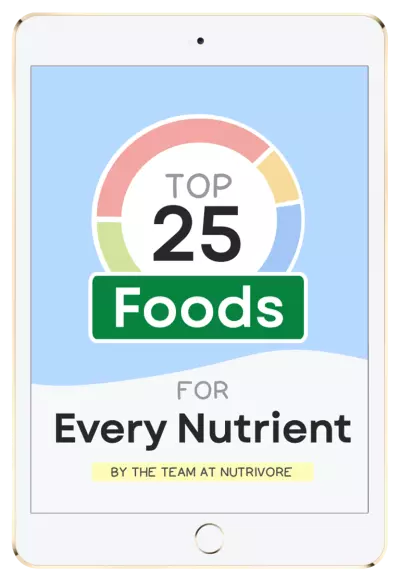
The Top 25 Foods for Every Nutrient
The Top 25 Foods for Every Nutrient e-book is a well-organized, easy-to-use, grocery store-friendly guide to help you choose foods that fit your needs of 43 important nutrients while creating a balanced nutrient-dense diet.
Get two “Top 25” food lists for each nutrient, plus you’ll find RDA charts for everyone, informative visuals, fun facts, serving sizes and the 58 foods that are Nutrient Super Stars!
Buy now for instant digital access.
Problems From Too Much Zinc
Consuming zinc at very high intake levels for extended periods of time (for adults, daily doses of over 40 or 50 mg, for weeks) can cause copper deficiency, due to zinc inducing the synthesis of the copper-binding protein metallothionein. However, this doesn’t seem to occur on a short-term basis, such as when taking high doses of zinc during a cold! And luckily, the reverse isn’t true: high copper intakes don’t impair the absorption of zinc.
In some cases, zinc supplements can cause unwanted side effects such as nausea, vomiting, diarrhea, and stomach pain—especially when taken on an empty stomach. Reports have also emerged of zinc-containing nasal sprays damaging people’s sense of smell, sometimes permanently.
It’s also worth noting that different forms of zinc have different bioavailability, with zinc picolinate generally being the most absorbable. Zinc citrate, zinc acetate, zinc gluconate, zinc glycerate, and zinc monomethionine are also readily absorbed, whereas zinc sulfate and zinc oxide tend to be less bioavailable and more likely to cause stomach upset.
How Much Zinc Do We Need?
The recommended dietary allowance (RDA) for zinc is 8 mg per day for women (11 if pregnant; 12 if nursing) and 11 mg per day for men. However, vegetarians and vegans who rely heavily on grains and legumes may need up to 50% higher dietary zinc intake to avoid deficiency, due to the high phytate levels in these foods.
| 0 – 6 months | |||||
| 6 months to < 12 months | |||||
| 1 yr – 3 yrs | |||||
| 4 yrs – 8 yrs | |||||
| 9 yrs – 13 yrs | |||||
| 14 yrs – 18 yrs | |||||
| 19 yrs – 50 yrs | |||||
| 51+ yrs | |||||
| Pregnant (14 – 18 yrs) | |||||
| Pregnant (19 – 30 yrs) | |||||
| Pregnant (31 – 50 yrs) | |||||
| Lactating (14 – 18 yrs) | |||||
| Lactating (19 – 30 yrs) | |||||
| Lactating (31 – 50 yrs) |
Nutrient Daily Values
Nutrition requirements and recommended nutrient intake for infants, children, adolescents, adults, mature adults, and pregnant and lactating individuals.
Best Food Sources of Zinc
The following foods have high concentrations of zinc, containing at least 50% of the recommended dietary allowance per serving, making them our best food sources of this valuable mineral!
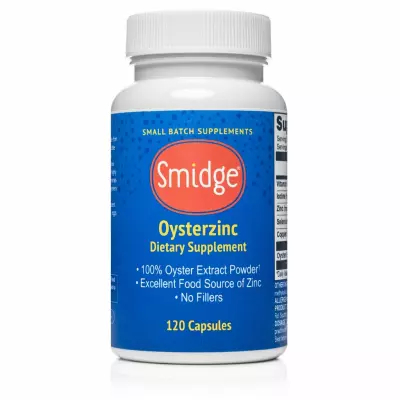
Need More Zinc?
- Highly bioavailable zinc from 100% oyster powder that is prepared in small batches from the meat of the oyster (no shells!)
- Each bottle contains the equivalent of over 60 oysters from the Atlantic ocean around Ireland.
- Plus, benefit from 59 trace minerals, 12 vitamins, and omega-3 fats
- No additives or fillers, and gluten-free, grain-free, dairy-free, soy-free, egg-free, peanut-free and nut-free.
Good Food Sources of Zinc
The following foods are also excellent or good sources of zinc, containing at least 10% (and up to 50%) of the daily value per serving.
Want to know the top 500 most nutrient-dense foods?
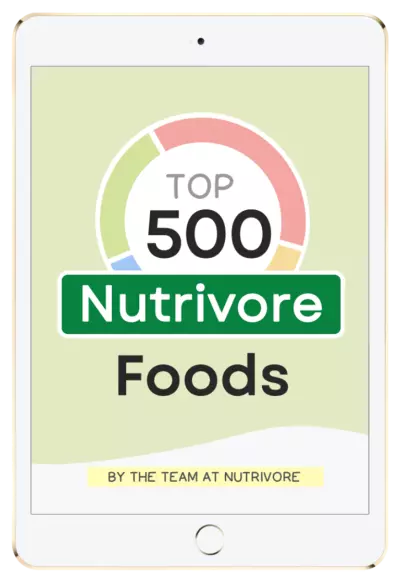
Top 500 Nutrivore Foods
The Top 500 Nutrivore Foods e-book is an amazing reference deck of the top 500 most nutrient-dense foods according to their Nutrivore Score. Think of it as the go-to resource for a super-nerd, to learn more and better understand which foods stand out, and why!
If you are looking for a quick-reference guide to help enhance your diet with nutrients, and dive into the details of your favorite foods, this book is your one-stop-shop!
Buy now for instant digital access.
Citations
Expand to see all scientific references for this article.
Afzali A, Goli S, Moravveji A, Bagheri H, Mirhosseini S, Ebrahimi H. The effect of zinc supplementation on fatigue among elderly community dwellers: A parallel clinical trial. Health Sci Rep. 2021 May 19;4(2):e301. doi: 10.1002/hsr2.301.
Ahmadi H, Mazloumi-Kiapey SS, Sadeghi O, Nasiri M, Khorvash F, Mottaghi T, Askari G. Zinc supplementation affects favorably the frequency of migraine attacks: a double-blind randomized placebo-controlled clinical trial. Nutr J. 2020 Sep 14;19(1):101. doi: 10.1186/s12937-020-00618-9.
Akhigbe RE, Hamed MA, Odetayo AF, Akhigbe TM, Oyedokun PA. Zinc improves sexual and erectile function in HAART-treated rats via the upregulation of erectogenic enzymes and maintenance of redox balance. Aging Male. 2023 Dec;26(1):2205517. doi: 10.1080/13685538.2023.2205517.
Atrián-Blasco E, Santoro A, Pountney DL, Meloni G, Hureau C, Faller P. Chemistry of mammalian metallothioneins and their interaction with amyloidogenic peptides and proteins. Chem Soc Rev. 2017 Dec 11;46(24):7683-7693. doi: 10.1039/c7cs00448f.
Bengtsson Y, Demircan K, Rosendahl AH, Borgquist S, Sandsveden M, Manjer J. Zinc and Breast Cancer Survival: A Prospective Cohort Study of Dietary Intake and Serum Levels. Nutrients. 2022 Jun 22;14(13):2575. doi: 10.3390/nu14132575.
Brandt S. The clinical effects of zinc as a topical or oral agent on the clinical response and pathophysiologic mechanisms of acne: a systematic review of the literature. J Drugs Dermatol. 2013 May;12(5):542-5.
Baum MK, Shor-Posner G, Campa A. Zinc status in human immunodeficiency virus infection. J Nutr. 2000 May;130(5S Suppl):1421S-3S. doi: 10.1093/jn/130.5.1421S.
Bjørklund G, Dadar M, Pen JJ, Chirumbolo S, Aaseth J. Chronic fatigue syndrome (CFS): Suggestions for a nutritional treatment in the therapeutic approach. Biomed Pharmacother. 2019 Jan;109:1000-1007. doi: 10.1016/j.biopha.2018.10.076.
Bhatnagar S, Taneja S. Zinc and cognitive development. Br J Nutr. 2001 May;85 Suppl 2:S139-45. doi: 10.1079/bjn2000306.
Brocard A, Knol AC, Khammari A, Dréno B. Hidradenitis suppurativa and zinc: a new therapeutic approach. A pilot study. Dermatology. 2007;214(4):325-7. doi: 10.1159/000100883.
Castro-Marrero J, Zaragozá MC, López-Vílchez I, Galmés JL, Cordobilla B, Maurel S, Domingo JC, Alegre-Martín J. Effect of Melatonin Plus Zinc Supplementation on Fatigue Perception in Myalgic Encephalomyelitis/Chronic Fatigue Syndrome: A Randomized, Double-Blind, Placebo-Controlled Trial. Antioxidants (Basel). 2021 Jun 23;10(7):1010. doi: 10.3390/antiox10071010.
Ceylan MN, Akdas S, Yazihan N. Is Zinc an Important Trace Element on Bone-Related Diseases and Complications? A Meta-analysis and Systematic Review from Serum Level, Dietary Intake, and Supplementation Aspects. Biol Trace Elem Res. 2021 Feb;199(2):535-549. doi: 10.1007/s12011-020-02193-w.
Cheng C, Lin J, Zhang Z, Zhang L. Association between dietary zinc intake and asthma in overweight or obese children and adolescents: A cross-sectional analysis of NHANES. World Allergy Organ J. 2024 Apr 21;17(5):100900. doi: 10.1016/j.waojou.2024.100900.
Chillon TS, Maares M, Demircan K, Hackler J, Sun Q, Heller RA, Diegmann J, Bachmann M, Moghaddam A, Haase H, Schomburg L. Serum Free Zinc Is Associated With Vaccination Response to SARS-CoV-2. Front Immunol. 2022 Jun 30;13:906551. doi: 10.3389/fimmu.2022.906551.
Dascalu AM, Anghelache A, Stana D, Costea AC, Nicolae VA, Tanasescu D, Costea DO, Tribus LC, Zgura A, Serban D, Duta L, Tudosie M, Balasescu SA, Tanasescu C, Tudosie MS. Serum levels of copper and zinc in diabetic retinopathy: Potential new therapeutic targets (Review). Exp Ther Med. 2022 May;23(5):324. doi: 10.3892/etm.2022.11253.
Deng MG, Liu F, Liang Y, Chen Y, Nie JQ, Chai C, Wang K. Associations of serum zinc, copper, and selenium with sleep disorders in the American adults: Data from NHANES 2011-2016. J Affect Disord. 2023 Feb 15;323:378-385. doi: 10.1016/j.jad.2022.11.088.
Dhaher SA, Yacoub AA, Jacob AA. Estimation of Zinc and Iron Levels in the Serum and Hair of Women with Androgenetic Alopecia: Case-control Study. Indian J Dermatol. 2018 Sep-Oct;63(5):369-374. doi: 10.4103/ijd.IJD_624_16.
Ehlayel MS, Bener A. Risk factors of zinc deficiency in children with atopic dermatitis. Eur Ann Allergy Clin Immunol. 2020 Jan;52(1):18-22. doi: 10.23822/EurAnnACI.1764-1489.114.
Fischer Walker C, Black RE. Zinc and the risk for infectious disease. Annu Rev Nutr. 2004;24:255-75. doi: 10.1146/annurev.nutr.23.011702.073054.
Fischer Walker CL, Ezzati M, Black RE. Global and regional child mortality and burden of disease attributable to zinc deficiency. Eur J Clin Nutr. 2009 May;63(5):591-7. doi: 10.1038/ejcn.2008.9.
Ghaffari J, Khalilian A, Salehifar E, Khorasani E, Rezaii MS. Effect of zinc supplementation in children with asthma: a randomized, placebo-controlled trial in northern Islamic Republic of Iran. East Mediterr Health J. 2014 Jun 18;20(6):391-6.
Gholipour Baradari A, Alipour A, Mahdavi A, Sharifi H, Nouraei SM, Emami Zeydi A. The Effect of Zinc Supplementation on Sleep Quality of ICU Nurses: A Double Blinded Randomized Controlled Trial. Workplace Health Saf. 2018 Apr;66(4):191-200. doi: 10.1177/2165079917734880.
Ghoreishy SM, Ebrahimi Mousavi S, Asoudeh F, Mohammadi H. Zinc status in attention-deficit/hyperactivity disorder: a systematic review and meta-analysis of observational studies. Sci Rep. 2021 Jul 16;11(1):14612. doi: 10.1038/s41598-021-94124-5.
Glutsch V, Hamm H, Goebeler M. Zinc and skin: an update. J Dtsch Dermatol Ges. 2019 Jun;17(6):589-596. doi: 10.1111/ddg.13811.
Gonçalves TJM, Gonçalves SEAB, Guarnieri A, Risegato RC, Guimarães MP, de Freitas DC, Razuk-Filho A, Junior PBB, Parrillo EF. Association Between Low Zinc Levels and Severity of Acute Respiratory Distress Syndrome by New Coronavirus SARS-CoV-2. Nutr Clin Pract. 2021 Feb;36(1):186-191. doi: 10.1002/ncp.10612.
Gray NA, Dhana A, Stein DJ, Khumalo NP. Zinc and atopic dermatitis: a systematic review and meta-analysis. J Eur Acad Dermatol Venereol. 2019 Jun;33(6):1042-1050. doi: 10.1111/jdv.15524.
Gupta M, Mahajan VK, Mehta KS, Chauhan PS. Zinc therapy in dermatology: a review. Dermatol Res Pract. 2014;2014:709152. doi: 10.1155/2014/709152.
Hambidge M. Human zinc deficiency. J Nutr. 2000 May;130(5S Suppl):1344S-9S. doi: 10.1093/jn/130.5.1344S.
Hemilä H. Zinc lozenges and the common cold: a meta-analysis comparing zinc acetate and zinc gluconate, and the role of zinc dosage. JRSM Open. 2017 May 2;8(5):2054270417694291. doi: 10.1177/2054270417694291.
Hemilä H, Chalker E. The effectiveness of high dose zinc acetate lozenges on various common cold symptoms: a meta-analysis. BMC Fam Pract. 2015 Feb 25;16:24. doi: 10.1186/s12875-015-0237-6.
Hessam S, Sand M, Meier NM, Gambichler T, Scholl L, Bechara FG. Combination of oral zinc gluconate and topical triclosan: An anti-inflammatory treatment modality for initial hidradenitis suppurativa. J Dermatol Sci. 2016 Nov;84(2):197-202. doi: 10.1016/j.jdermsci.2016.08.010.
Hijova E. Metallothioneins and zinc: their functions and interactions. Bratisl Lek Listy. 2004;105(5-6):230-4.
Huang TC, Chang WT, Hu YC, Hsieh BS, Cheng HL, Yen JH, Chiu PR, Chang KL. Zinc Protects Articular Chondrocytes through Changes in Nrf2-Mediated Antioxidants, Cytokines and Matrix Metalloproteinases. Nutrients. 2018 Apr 11;10(4):471. doi: 10.3390/nu10040471.
Hussein M, Fathy W, Hassan A, Elkareem RA, Marzouk S, Kamal YS. Zinc deficiency correlates with severity of diabetic polyneuropathy. Brain Behav. 2021 Oct;11(10):e2349. doi: 10.1002/brb3.2349.
Institute of Medicine (US) Panel on Micronutrients. Dietary Reference Intakes for Vitamin A, Vitamin K, Arsenic, Boron, Chromium, Copper, Iodine, Iron, Manganese, Molybdenum, Nickel, Silicon, Vanadium, and Zinc. National Institutes of Health (NIH). Washington (DC): National Academies Press (US); 2001. 12, Zinc.
Ji X, Liu J. Associations between Blood Zinc Concentrations and Sleep Quality in Childhood: A Cohort Study. Nutrients. 2015 Jul 13;7(7):5684-96. doi: 10.3390/nu7075247.
Karamali M, Heidarzadeh Z, Seifati SM, Samimi M, Tabassi Z, Hajijafari M, Asemi Z, Esmaillzadeh A. Zinc supplementation and the effects on metabolic status in gestational diabetes: A randomized, double-blind, placebo-controlled trial. J Diabetes Complications. 2015 Nov-Dec;29(8):1314-9. doi: 10.1016/j.jdiacomp.2015.07.001.
Karashima T, Tsuruta D, Hamada T, Ono F, Ishii N, Abe T, Ohyama B, Nakama T, Dainichi T, Hashimoto T. Oral zinc therapy for zinc deficiency-related telogen effluvium. Dermatol Ther. 2012 Mar-Apr;25(2):210-3. doi: 10.1111/j.1529-8019.2012.01443.x.
King JC. Zinc: an essential but elusive nutrient. Am J Clin Nutr. 2011 Aug;94(2):679S-84S. doi: 10.3945/ajcn.110.005744.
Khanbabaee G, Omidian A, Imanzadeh F, Adibeshgh F, Ashayeripanah M, Rezaei N. Serum level of zinc in asthmatic patients: a case-control study. Allergol Immunopathol (Madr). 2014 Jan-Feb;42(1):19-21. doi: 10.1016/j.aller.2012.07.008.
Laity JH, Lee BM, Wright PE. Zinc finger proteins: new insights into structural and functional diversity. Curr Opin Struct Biol. 2001 Feb;11(1):39-46. doi: 10.1016/s0959-440x(00)00167-6. PMID: 11179890.
Lazzerini M, Wanzira H. Oral zinc for treating diarrhoea in children. Cochrane Database Syst Rev. 2016 Dec 20;12(12):CD005436. doi: 10.1002/14651858.CD005436.pub5.
Liu F, Ma F, Kong G, Wu K, Deng Z, Wang H. Zinc supplementation alleviates diabetic peripheral neuropathy by inhibiting oxidative stress and upregulating metallothionein in peripheral nerves of diabetic rats. Biol Trace Elem Res. 2014 May;158(2):211-8. doi: 10.1007/s12011-014-9923-9.
Liu RJ, Li SY, Xu ZP, Yu JJ, Mao WP, Sun C, Xu B, Chen M. Dietary metal intake and the prevalence of erectile dysfunction in US men: Results from National Health and Nutrition Examination Survey 2001-2004. Front Nutr. 2022 Nov 3;9:974443. doi: 10.3389/fnut.2022.974443.
Liu H, Wang Q, Dong Z, Yu S. Dietary zinc intake and migraine in adults: a cross-sectional analysis of the National Health and Nutrition Examination Survey 1999-2004. Headache. 2023 Jan;63(1):127-135. doi: 10.1111/head.14431.
Maares M, Haase H. Zinc and immunity: An essential interrelation. Arch Biochem Biophys. 2016 Dec 1;611:58-65. doi: 10.1016/j.abb.2016.03.022.
MacDonald RS. The role of zinc in growth and cell proliferation. J Nutr. 2000 May;130(5S Suppl):1500S-8S. doi: 10.1093/jn/130.5.1500S.
Maes M, Mihaylova I, De Ruyter M. Lower serum zinc in Chronic Fatigue Syndrome (CFS): relationships to immune dysfunctions and relevance for the oxidative stress status in CFS. J Affect Disord. 2006 Feb;90(2-3):141-7. doi: 10.1016/j.jad.2005.11.002.
Mahmoodianfard S, Vafa M, Golgiri F, Khoshniat M, Gohari M, Solati Z, Djalali M. Effects of Zinc and Selenium Supplementation on Thyroid Function in Overweight and Obese Hypothyroid Female Patients: A Randomized Double-Blind Controlled Trial. J Am Coll Nutr. 2015;34(5):391-9. doi: 10.1080/07315724.2014.926161.
Maserejian NN, Hall SA, McKinlay JB. Low dietary or supplemental zinc is associated with depression symptoms among women, but not men, in a population-based epidemiological survey. J Affect Disord. 2012 Feb;136(3):781-8. doi: 10.1016/j.jad.2011.09.039.
Maxwell C, Volpe SL. Effect of zinc supplementation on thyroid hormone function. A case study of two college females. Ann Nutr Metab. 2007;51(2):188-94. doi: 10.1159/000103324.
Mazaheri M, Aghdam AM, Heidari M, Zarrin R. Assessing the Effect of Zinc Supplementation on the Frequency of Migraine Attack, Duration, Severity, Lipid Profile and hs-CRP in Adult Women. Clin Nutr Res. 2021 Apr 27;10(2):127-139. doi: 10.7762/cnr.2021.
McCall KA, Huang C, Fierke CA. Function and mechanism of zinc metalloenzymes. J Nutr. 2000 May;130(5S Suppl):1437S-46S. doi: 10.1093/jn/130.5.1437S.
Merchant HW, Gangarosa LP, Glassman AB, Sobel RE. Zinc sulfate supplementation for treatment of recurring oral ulcers. South Med J. 1977 May;70(5):559-61. doi: 10.1097/00007611-197705000-00016.
Miao X, Sun W, Miao L, Fu Y, Wang Y, Su G, Liu Q. Zinc and diabetic retinopathy. J Diabetes Res. 2013;2013:425854. doi: 10.1155/2013/425854.
Mierzecki A, Strecker D, Radomska K. A pilot study on zinc levels in patients with rheumatoid arthritis. Biol Trace Elem Res. 2011 Nov;143(2):854-62. doi: 10.1007/s12011-010-8952-2.
Moghimi M, Ashrafzadeh S, Rassi S, Naseh A. Maternal zinc deficiency and congenital anomalies in newborns. Pediatr Int. 2017 Apr;59(4):443-446. doi: 10.1111/ped.13176.
Mohamed NA, Rushdy M, Abdel-Rehim ASM. The immunomodulatory role of zinc in asthmatic patients. Cytokine. 2018 Oct;110:301-305. doi: 10.1016/j.cyto.2018.03.007.
Moustafa SA. Zinc might protect oxidative changes in the retina and pancreas at the early stage of diabetic rats. Toxicol Appl Pharmacol. 2004 Dec 1;201(2):149-55. doi: 10.1016/j.taap.2004.05.014.
Nakano M, Nakamura Y, Miyazaki A, Takahashi J. Zinc Pharmacotherapy for Elderly Osteoporotic Patients with Zinc Deficiency in a Clinical Setting. Nutrients. 2021 May 27;13(6):1814. doi: 10.3390/nu13061814.
Nishida K, Uchida R. Role of Zinc Signaling in the Regulation of Mast Cell-, Basophil-, and T Cell-Mediated Allergic Responses. J Immunol Res. 2018 Nov 25;2018:5749120. doi: 10.1155/2018/5749120.
Park H, Kim CW, Kim SS, Park CW. The therapeutic effect and the changed serum zinc level after zinc supplementation in alopecia areata patients who had a low serum zinc level. Ann Dermatol. 2009 May;21(2):142-6. doi: 10.5021/ad.2009.21.2.142.
Penny ME. Zinc supplementation in public health. Ann Nutr Metab. 2013;62 Suppl 1:31-42. doi: 10.1159/000348263.
Plonka PM, Handjiski B, Popik M, Michalczyk D, Paus R. Zinc as an ambivalent but potent modulator of murine hair growth in vivo- preliminary observations. Exp Dermatol. 2005 Nov;14(11):844-53. doi: 10.1111/j.1600-0625.2005.00365.x.
Podlecka D, Jerzyńska J, Sanad K, Polańska K, Bobrowska-Korzeniowska M, Stelmach I, Brzozowska A. Micronutrients and the Risk of Allergic Diseases in School Children. Int J Environ Res Public Health. 2022 Sep 26;19(19):12187. doi: 10.3390/ijerph191912187.
Poujois A, Woimant F. Wilson’s disease: A 2017 update. Clin Res Hepatol Gastroenterol. 2018 Dec;42(6):512-520. doi: 10.1016/j.clinre.2018.03.007.
Prasad AS. Discovery of human zinc deficiency: its impact on human health and disease. Adv Nutr. 2013 Mar 1;4(2):176-90. doi: 10.3945/an.112.003210. PMID: 23493534; PMCID: PMC3649098.
Prasad AS. Impact of the discovery of human zinc deficiency on health. J Trace Elem Med Biol. 2014 Oct;28(4):357-63. doi: 10.1016/j.jtemb.2014.09.002.
Rabbani E, Golgiri F, Janani L, Moradi N, Fallah S, Abiri B, Vafa M. Randomized Study of the Effects of Zinc, Vitamin A, and Magnesium Co-supplementation on Thyroid Function, Oxidative Stress, and hs-CRP in Patients with Hypothyroidism. Biol Trace Elem Res. 2021 Nov;199(11):4074-4083. doi: 10.1007/s12011-020-02548-3.
Ranasinghe P, Wathurapatha WS, Galappatthy P, Katulanda P, Jayawardena R, Constantine GR. Zinc supplementation in prediabetes: A randomized double-blind placebo-controlled clinical trial. J Diabetes. 2018 May;10(5):386-397. doi: 10.1111/1753-0407.12621.
Ranasinghe P, Wathurapatha WS, Ishara MH, Jayawardana R, Galappatthy P, Katulanda P, Constantine GR. Effects of Zinc supplementation on serum lipids: a systematic review and meta-analysis. Nutr Metab (Lond). 2015 Aug 4;12:26. doi: 10.1186/s12986-015-0023-4.
Rao G, Rowland K. PURLs: Zinc for the common cold–not if, but when. J Fam Pract. 2011 Nov;60(11):669-71.
Razzaque MS. COVID-19 pandemic: Can zinc supplementation provide an additional shield against the infection? Comput Struct Biotechnol J. 2021;19:1371-1378. doi: 10.1016/j.csbj.2021.02.015.
Rerksuppaphol S, Rerksuppaphol L. Zinc Supplementation in Children with Asthma Exacerbation. Pediatr Rep. 2016 Dec 9;8(4):6685. doi: 10.4081/pr.2016.6685.
Ribeiro SMF, Braga CBM, Peria FM, Martinez EZ, Rocha JJRD, Cunha SFC. Effects of zinc supplementation on fatigue and quality of life in patients with colorectal cancer. Einstein (Sao Paulo). 2017 Jan-Mar;15(1):24-28. doi: 10.1590/S1679-45082017AO3830.
Rosenkranz E, Hilgers RD, Uciechowski P, Petersen A, Plümäkers B, Rink L. Zinc enhances the number of regulatory T cells in allergen-stimulated cells from atopic subjects. Eur J Nutr. 2017 Mar;56(2):557-567. doi: 10.1007/s00394-015-1100-1.
Ruz M, Carrasco F, Rojas P, Basfi-Fer K, Hernández MC, Pérez A. Nutritional Effects of Zinc on Metabolic Syndrome and Type 2 Diabetes: Mechanisms and Main Findings in Human Studies. Biol Trace Elem Res. 2019 Mar;188(1):177-188. doi: 10.1007/s12011-018-1611-8.
Ruz M, Carrasco F, Rojas P, Basfi-Fer K, Hernández MC, Pérez A. Nutritional Effects of Zinc on Metabolic Syndrome and Type 2 Diabetes: Mechanisms and Main Findings in Human Studies. Biol Trace Elem Res. 2019 Mar;188(1):177-188. doi: 10.1007/s12011-018-1611-8.
Sanna A, Firinu D, Zavattari P, Valera P. Zinc Status and Autoimmunity: A Systematic Review and Meta-Analysis. Nutrients. 2018 Jan 11;10(1):68. doi: 10.3390/nu10010068.
Schwartz JR, Marsh RG, Draelos ZD. Zinc and skin health: overview of physiology and pharmacology. Dermatol Surg. 2005 Jul;31(7 Pt 2):837-47; discussion 847. doi: 10.1111/j.1524-4725.2005.31729.
Science M, Johnstone J, Roth DE, Guyatt G, Loeb M. Zinc for the treatment of the common cold: a systematic review and meta-analysis of randomized controlled trials. CMAJ. 2012 Jul 10;184(10):E551-61. doi: 10.1503/cmaj.111990.
Seo HM, Kim YH, Lee JH, Kim JS, Park YM, Lee JY. Serum Zinc Status and Its Association with Allergic Sensitization: The Fifth Korea National Health and Nutrition Examination Survey. Sci Rep. 2017 Oct 3;7(1):12637. doi: 10.1038/s41598-017-13068-x.
Shankar AH, Prasad AS. Zinc and immune function: the biological basis of altered resistance to infection. Am J Clin Nutr. 1998 Aug;68(2 Suppl):447S-463S. doi: 10.1093/ajcn/68.2.447S.
Sharquie KE, Najim RA, Al-Salman HN. Oral zinc sulfate in the treatment of rosacea: a double-blind, placebo-controlled study. Int J Dermatol. 2006 Jul;45(7):857-61. doi: 10.1111/j.1365-4632.2006.02944.x.
Shohag H, Ullah A, Qusar S, Rahman M, Hasnat A. Alterations of serum zinc, copper, manganese, iron, calcium, and magnesium concentrations and the complexity of interelement relations in patients with obsessive-compulsive disorder. Biol Trace Elem Res. 2012 Sep;148(3):275-80. doi: 10.1007/s12011-012-9371-3.
Sun Q, van Dam RM, Willett WC, Hu FB. Prospective study of zinc intake and risk of type 2 diabetes in women. Diabetes Care. 2009 Apr;32(4):629-34. doi: 10.2337/dc08-1913.
Talebi S, Miraghajani M, Ghavami A, Mohammadi H. The effect of zinc supplementation in children with attention deficit hyperactivity disorder: A systematic review and dose-response meta‑analysis of randomized clinical trials. Crit Rev Food Sci Nutr. 2022;62(32):9093-9102. doi: 10.1080/10408398.2021.1940833.
Tasaki M, Hanada K, Hashimoto I. Analyses of serum copper and zinc levels and copper/zinc ratios in skin diseases. J Dermatol. 1993 Jan;20(1):21-4. doi: 10.1111/j.1346-8138.1993.tb03823.x.
Vashum KP, McEvoy M, Shi Z, Milton AH, Islam MR, Sibbritt D, Patterson A, Byles J, Loxton D, Attia J. Is dietary zinc protective for type 2 diabetes? Results from the Australian longitudinal study on women’s health. BMC Endocr Disord. 2013 Oct 4;13:40. doi: 10.1186/1472-6823-13-40.
Vaughn AR, Foolad N, Maarouf M, Tran KA, Shi VY. Micronutrients in Atopic Dermatitis: A Systematic Review. J Altern Complement Med. 2019 Jun;25(6):567-577. doi: 10.1089/acm.2018.0363.
Ventriglia M, Brewer GJ, Simonelli I, Mariani S, Siotto M, Bucossi S, Squitti R. Zinc in Alzheimer’s Disease: A Meta-Analysis of Serum, Plasma, and Cerebrospinal Fluid Studies. J Alzheimers Dis. 2015;46(1):75-87. doi: 10.3233/JAD-141296.
Vogel-González M, Talló-Parra M, Herrera-Fernández V, Pérez-Vilaró G, Chillón M, Nogués X, Gómez-Zorrilla S, López-Montesinos I, Arnau-Barrés I, Sorli-Redó ML, Horcajada JP, García-Giralt N, Pascual J, Díez J, Vicente R, Güerri-Fernández R. Low Zinc Levels at Admission Associates with Poor Clinical Outcomes in SARS-CoV-2 Infection. Nutrients. 2021 Feb 9;13(2):562. doi: 10.3390/nu13020562.
Wang L, Song Y. Efficacy of zinc given as an adjunct to the treatment of severe pneumonia: A meta-analysis of randomized, double-blind and placebo-controlled trials. Clin Respir J. 2018 Mar;12(3):857-864. doi: 10.1111/crj.12646.
Wood RJ, Zheng JJ. High dietary calcium intakes reduce zinc absorption and balance in humans. Am J Clin Nutr. 1997 Jun;65(6):1803-9. doi: 10.1093/ajcn/65.6.1803.
Xie Y, Wang J, Zhao X, Zhou X, Nie X, Li C, Huang F, Yuan H. Higher serum zinc levels may reduce the risk of cervical cancer in Asian women: A meta-analysis. J Int Med Res. 2018 Dec;46(12):4898-4906. doi: 10.1177/0300060518805600.
Xue M, Wang Q, Pang B, Zhang X, Zhang Y, Deng X, Zhang Z, Niu W. Association Between Circulating Zinc and Risk for Childhood Asthma and Wheezing: A Meta-analysis on 21 Articles and 2205 Children. Biol Trace Elem Res. 2024 Feb;202(2):442-453. doi: 10.1007/s12011-023-03690-4.
Yang WM, Lv JF, Wang YY, Xu YM, Lin J, Liu J, Chen JJ, Wang XZ. The Daily Intake Levels of Copper, Selenium, and Zinc Are Associated with Osteoarthritis but Not with Rheumatoid Arthritis in a Cross-sectional Study. Biol Trace Elem Res. 2023 Dec;201(12):5662-5670. doi: 10.1007/s12011-023-03636-w.
Yee BE, Richards P, Sui JY, Marsch AF. Serum zinc levels and efficacy of zinc treatment in acne vulgaris: A systematic review and meta-analysis. Dermatol Ther. 2020 Nov;33(6):e14252. doi: 10.1111/dth.14252.
Zheng Z, Luo H, Sun C, Xue Q. The influence of zinc and iron intake on osteoarthritis patients’ subchondral sclerosis progression: A prospective observational study using data from the osteoarthritis Initiative. Heliyon. 2023 Nov 4;9(11):e22046. doi: 10.1016/j.heliyon.2023.e22046.
Zufishan S, Haque Z, Nazar S, Afaq E, Aamir E, Rafique S. Role of zinc in chronic telogen effluvium in serum and hair of patients with alopecia. J Pak Med Assoc. 2024 Feb;74(1 (Supple-2)):S47-S50. doi: 10.47391/JPMA-DUHS-S10.


